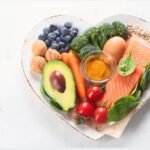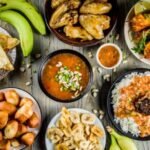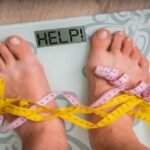Why can’t you stick to a diet?.
You know what you need to do, but the motivation to stick to a diet is just not there.
Are you finding that you are always starting a diet on a Monday?. Why is it so hard to stick to a healthy eating plan?.

The difference between a diet and a healthy eating lifestyle.
Firstly, just the thought of starting and sticking to a diet is going to cause you anxiety.
There is an enormous amount of content out there that is promising the world. The truth is, getting to a healthy weight and staying there is never going to be achieved in 2 weeks.
A diet plan sold as a quick fix is never going to be a sustainable solution. The only way to ensure you succeed in adopting a long term healthy lifestyle is to change your food relationship.
Becoming one of “those” people who refer to carbs and proteins as opposed to bread and steak is a good thing, and this is why:
Knowing how your body responds to triggers.
 Firstly, understanding your body’s relationship with food is the start of a lovely journey. For many people, comfort eating is a real thing. When you find yourself upset, lonely, recently dumped, or stressed, food can replace a healthy alternative.
Firstly, understanding your body’s relationship with food is the start of a lovely journey. For many people, comfort eating is a real thing. When you find yourself upset, lonely, recently dumped, or stressed, food can replace a healthy alternative.
Once you can identify the triggers, you can circumvent the trip to the fridge instead of going for a walk around the block to clear your head and get some feel-good endorphins into your blood stream.
Knowing what your body needs.
Cravings are the worst when it comes to food. Having access to sugary foods when the craving hits just spells disaster. So the first step is not to have it in the cupboard.
You need to identify what your body is craving and fuel it with that. Instead of reaching for the easy option of a chocolate bar or bag of chips, stop and assess the hunger first.
Often, our bodies are looking for an energy boost. So an instant option is a sugary snack or coffee. Or your body could be asking for water as you may be dehydrated. Often, thirst is mistaken for hunger. So before you gobble down that pie, have a glass of water and wait 15 minutes for it to settle.
Fueling your body for survival.
Your body needs certain nutrients to operate at an optimal level. This is a combination of minerals, vitamins, carbohydrates, and proteins. If you have too many of one and not enough of the other, your body’s balance is out of . For instance, if you eat too many carbs, not using them for fuel by being active enough turns them into sugar, storing as fat.

Eating just the right amount of food that your body needs to function is essential to managing your weight. If you are sedentary, your plates need to be far smaller than running around all day for work or sport.

You cannot out-train a bad diet.
Even the best athletes in the world cannot out-train a lousy eating plan. Eating too many refined carbs (bread, cakes, pasta, etc.) adds to belly fat. It collects around your organs, making them work so much harder to function. Putting this unnecessary strain on your body reduces the functions of your organs.
Measuring your calories in vs. your calories you are burning over the day gives you an indication of what you should be eating.
Knowing what each meal contributes to the calorie count will soon get you to make different decisions when it comes to choosing what you put in your mouth.

Being honest with yourself.
Fast food does not make you feel good. Making excuses to the contrary is a mind game you won’t win.
The long term effects of fatty food that may taste good going in is something you need to think about. Being a parent, partner, or business owner, you owe it to your family and co-workers to be healthy and available to them.
If you want to start tracking what you are eating, have a look for one of the many apps that measure your food and activity.
Daily monitoring of your intake and output will make a real difference to your understanding of food, and ultimately your relationship with it.












